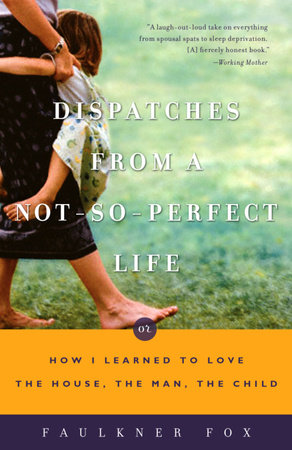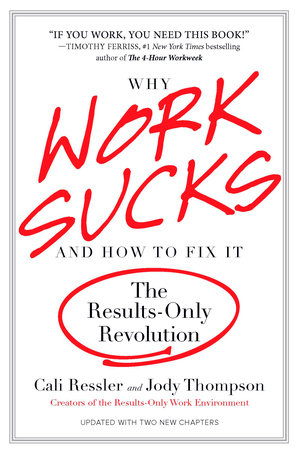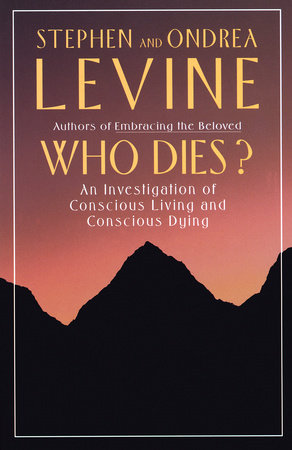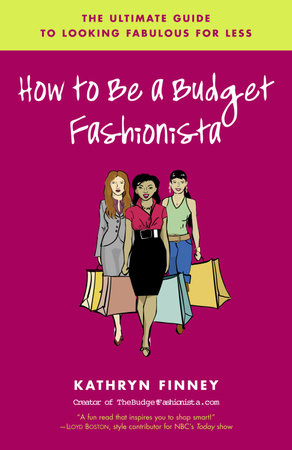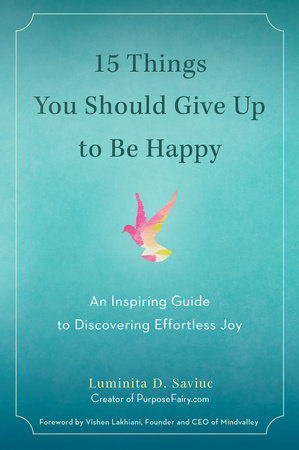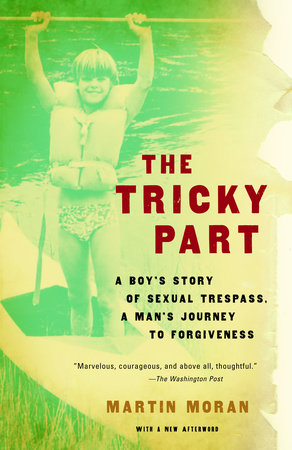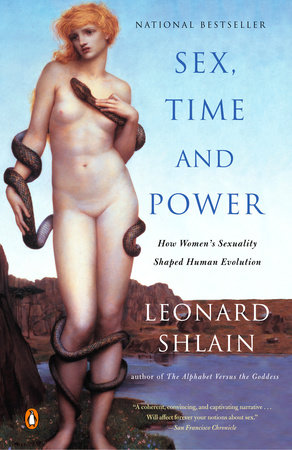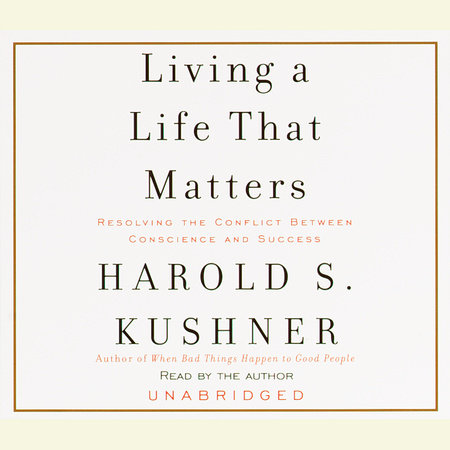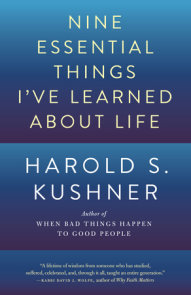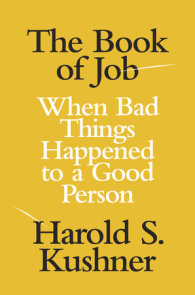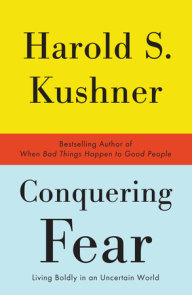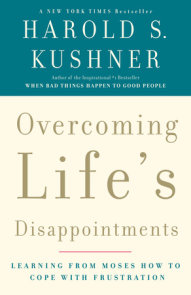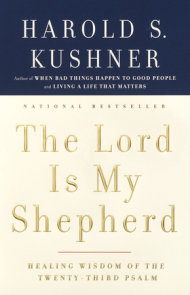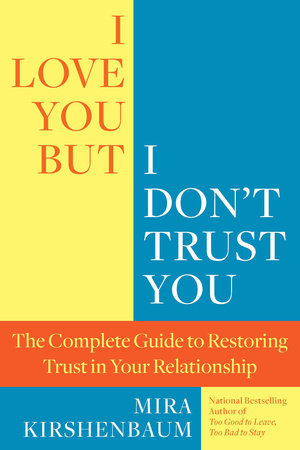Author Q&A
A Conversation with Harold Kushner, author of Living a Life That Matters
Q: Why did you choose to write this particular book at this particular time – in your own life as well as that of society at large?
A: I found my subject matter for this book, as I find all my themes, by listening to people’s fears and complaints and identifying which ones I find myself struggling with as well. I ran into a lot of people—neighbors and people in the news—who seemed desperate to do something to leave their mark on the world. It could be something good—an invention, a medical breakthrough; it could be something horrible—a crime that would put them in the headlines; or it could be something silly—like getting into The Guinness Book of World Records. Whatever it was, it was better than being unknown and anonymous.
And then, of course, I was writing this book the year I turned 65 and found myself thinking more about what my life will have meant when it’s over.
Q: You write a lot about Jacob, whom you describe as perhaps “The most intriguing person in the Bible.” How does Jacob embody the conflict between conscience and success?
A: If you remember your Sunday School stories, Jacob does some pretty unpleasant things to get ahead. He won’t give his hungry twin brother, Esau, a bowl of soup unless his brother signs over the birthright, the right to be considered the first-born. He disguises himself to fool his blind old father and get the blessing that was intended for his brother. And at one level, he hates himself for doing those things. He does them, he wants the prize, but he dislikes the person he has to be to get it.
One night, it all comes to a head. In a few hours he is going to meet his brother for the first time in twenty years, and he is afraid that Esau is looking to get even. Jacob is tempted to run away, to come up with a trick. But this time he says, "No! I’m tired of being somebody who lies and hides." He prays to God to give him the strength to do the right thing. And that’s when he has his famous wrestling encounter with the angel, which I interpret as wrestling with his conscience and for the first time letting his conscience win.
Q: You devote a chapter of your book to the idea of revenge and getting even. From the character of Hamlet to Dirty Harry, it is ingrained in many of us that revenge is not only sweet, but our right. You write, “The prospect of getting even is hardly worth what it does to us as people.” How so?
A: You’re right, the desire to get even is nearly irresistible, as a lot of bad habits are nearly irresistible, but we know how important it is to learn to resist them. When you feel the urge to get even with someone who has hurt you, one of two things happen and they’re both bad. Either you fantasize about getting back at the other person but never do it, in which case you feel powerless and the other person isn’t affected at all. Or else you act on it, and in the process you lower yourself to his level, you think less of yourself afterward, you may damage your reputation and you may even get in trouble with the law.
So what can you do instead? You can realize that revenge is not about hurting someone as he has hurt you. It’s about reclaiming power after someone has made you feel powerless. You can reclaim power by maintaining your integrity and letting the authorities handle it for you. Or you can reclaim power by being strong enough to rise above it, to walk away not out of fear or helplessness but out of strength and dignity. It has been said that getting into an argument with a boorish person is like mudwrestling with a pig—you’ll both get filthy but the pig will enjoy it.
Q: You discuss a recent trend in American legal circles known as “restorative justice.” What is that and how does it promote healing?
A: Restorative Justice is something I’ve just become aware of. I don’t know a whole lot about it, but what I do know, I find very attractive. First, it focuses less on punishing the criminal—what we know as Retributive Justice—and more on making the victim whole. I’ve had victims of rapes and muggings complain to me "Why is it, ‘The State versus…’ when I’m the one who was violated?" The first priority of Restorative Justice is to make the victim whole, by giving her a sense of power and dignity, listening to her story (as is in South Africa with the Truth and Reconciliation Commission), trying to replace what was taken from her financially and psychologically. Second, it tries to involve the criminal in the effort to restore the victim, making him see himself as a member of society and not as an outcast.
Q: You write, “In today’s world so many of our interactions have become impersonal.” How can we counteract this trend and the feelings of insignificance it causes?
A: You can see some of the things people are instinctively doing because the world has become so big and anonymous. They are defining themselves by sub-groups they belong to, by religion, by ethnic background, by geographical region, by sexual orientation. A friend of mine says, "I tried to believe in the brotherhood of man, but I couldn’t handle having six billion brothers. So now I believe in the brotherhood of Jews and the cousinhood of man."
I’m not sure this fragmenting of the American population is a good idea. What I would rather see people do is find a community within their community where, as they used to say on Cheers, "everybody knows your name." Churches, synagogues, Rotary Clubs, would be a better way of escaping that anonymity and friendlessness.
Q: If, as you say, people naturally want to be good, why do so many people do bad things?
A: People do wrong things for a lot of reasons. Sometimes they’re angry. Sometimes they’re scared. But I’ve come to the conclusion that one of the main reasons people do things that hurt other people is their thirst for feeling important, a thirst they all too often quench by exercising power over others.
My wife and I recently returned from a trip to Eastern Europe, where we visited the towns where our parents were born. While we were there, we saw the sites of Nazi massacres of Jews and other innocent victims. What makes a decent, church-going man become a Nazi? It has been suggested that these were people who were raised to follow orders, and they were just following orders. But the stories we hears of Nazi brutality was more than just following orders. There was too much enthusiasm, too much sadistic glee in what they did. I believe what they were responding to, and these were often people who were inconspicuous, even ineffective in their civilian lives, was the opportunity to dominate another person, to play God with the power of life and death. It’s a terrifying thing to realize how addictive that feeling of power over another person can be. That’s why men beat up their wives and muggers attack innocent passers-by. I believe that if we could find other ways for people to feel significant, a lot of that random violence would stop.
Q: You write, “one of the saddest commentaries on American life is that we have made is so hard for men to have male friends.” Why do you think this is so, and how does it impact society as a whole?
A: Whether it’s biologically innate or culturally imposed, I think the scholar Carol Gilligan is right when she notes that girls growing up tend to have best friends, as if they were rehearsing for marriage, and boys growing up tend to play competitive games as if they were rehearsing for the business world. Men are taught to see other men as prospective rivals. They will cooperate with them, they will join them for shared experiences at work or for fishing or football. But they will be reluctant to open up and share their fears and weaknesses with another man. I suspect a lot of extramarital affairs are not the result of men looking for sex but of men looking for closeness.
Q: Many women struggle with seeing themselves as successful both professionally and personally, especially those choosing between a career and fulltime motherhood. How do you advise those women?
A: I have a friend who says, "Women can have it all, they just can’t have it all at the same time." She calls it sequencing. Advance your career, then take time off to have a family. Or raise your kids first and, when they’re old enough, go to work. Will it limit your advancement in your profession? Probably. But one of the most important things I’m trying to say in my book is that raising and shaping a family and filling a home with love has more of an impact on the world than 90% of business people will ever have. It is so wrong for women who have stayed home to feel that they’ve done nothing with their lives. They’ve done the most important things.
Q: You talk about “generativity.” What is that and why is it so important?
A: "Generativity" is a term I found in the writings of Erik Erikson. I don’t know if it originated with him. It means that as you approach the last part of your life, you think less about yourself – what hurts, who has or hasn’t called you – and you think more about what kind of world you’ll be leaving to the next generation. And the beautiful thing about generativity is that, even if it doesn’t change the world, it is the best cure for those teenagers and elderly people who feel ignored and insignificant. Don’t wait for people to reach out to you; you be the one who reaches out.
Q: So many people seem conditioned to define their success by how much money they make, or by their fame–highly visible, flashy things. Yet it is often the smallest, most ordinary daily acts of kindness and friendship that are truly important. How do you go about convincing people of that?
A: Ask yourself what you would rather have on your tombstone : "Ruthlessly Effective CEO" or "Beloved Husband and Father,” and act accordingly. Ask yourself, When I look back on my life as Jacob does at the end of the Book of Genesis, what will I be most proud of? In Jacob’s case, it wasn’t the successful business ventures, though there were a lot of them. It was the knowledge that God approved of the kind of person he had grown to be, and the memory that he once knew what it felt like to love somebody. Everything else faded, those two things remained.
Q: Recently, many books on World War II–especially The Greatest Generation, have become immensely popular. Some argue that this is due to a sense many people have that we no longer live in an age of great heroes or events, that it is harder to live a life that matters. How would you respond to that?
A: What is striking about so many people’s war memories is that what they remember is so terrible—crawling through mud, seeing friends killed next to you—but they are so proud of those memories because they know they were making a difference to the world. The philosopher William James tried to come up with a "moral equivalent of war," a way for people to feel heroic and noble without having to kill each other, but he never quite managed. I would suggest that the moral equivalent of changing the world by defeating the forces of evil might be changing the world for the better by fashioning a climate of compassion, decency, and sharing, instead of trying to outdo. Let fighting the evils of bigotry, racial hatred, and economic injustice be our generation’s equivalent of going to war against the Nazis.
Q: People who call themselves “religious” or “spiritual” represent a wide range of people. Are the issues you discuss and advice you give in Living a Life That Matters common to all?
A: Sure they are. I don’t start with religion’s answers and say to people, "Here is the truth." I start with people’s questions, people’s pain and confusion, and I say to them, "I’d like to help you. Might there be something in the accumulated wisdom of past generations that can give us a clue as to how to help?" And we discover that human nature, human hopes and fears, haven’t really changed that much across the generations.
Q: This year marks the 20th anniversary of When Bad Things Happen To Good People, your book that is in millions of households in america. How do you feel about the enduring success of that book?
A: It is amazing, isn’t it? Would you believe that two or three times every week I pause and reflect on it, asking myself, "Did this really happen to me?" My little book has changed the way people respond to tragedy in this country. And for me, it’s the proof of God—not of the existence of God but of the goodness of God. When biology and genetics decreed that our son would die young, God showed me how to redeem his death from being an insignificant statistic and turn it into something that would heal millions of souls.



